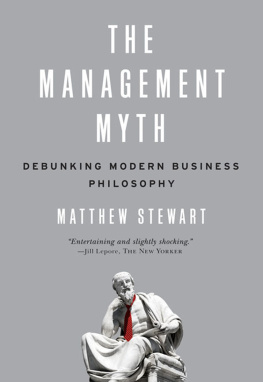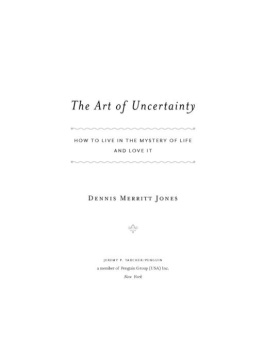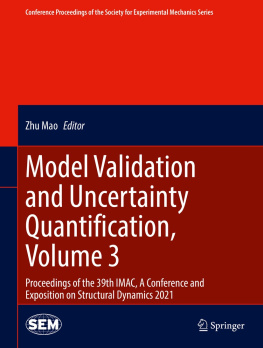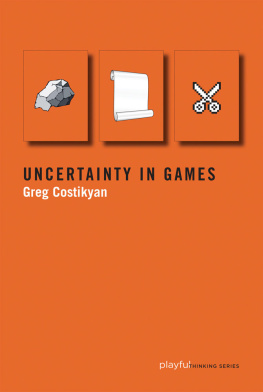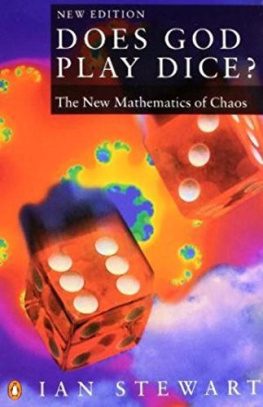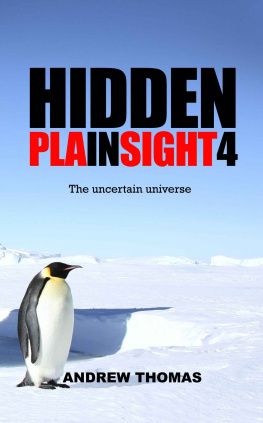DO DICE PLAY GOD?
By the same author
Concepts of Modern Mathematics
Does God Play Dice?
Game, Set, and Math
Another Fine Math Youve Got Me Into Fearful Symmetry
Natures Numbers
From Here to Infinity
The Magical Maze
Lifes Other Secret
Flatterland
What Shape is a Snowflake?
The Annotated Flatland
Math Hysteria
The Mayor of Uglyvilles Dilemma
How to Cut a Cake
Letters to a Young Mathematician
Taming the Infinite (Alternative Title: The Story Of Mathematics)
Why Beauty is Truth
Cows in the Maze
Professor Stewarts Cabinet of Mathematical Curiosities
Mathematics of Life
Professor Stewarts Hoard of Mathematical Treasures Seventeen Equations that Changed the World (Alternative Title: In Pursuit of the Unknown)
The Great Mathematical Problems (Alternative Title: Visions of Infinity)
Symmetry: A Very Short Introduction
Jack of All Trades (Science Fiction)
Professor Stewarts Casebook of Mathematical Mysteries
The Beauty of Numbers in Nature
Professor Stewarts Incredible Numbers
Calculating the Cosmos
Significant Figures
With Jack Cohen
The Collapse of Chaos
Evolving the Alien (Alternative Title: What Does a Martian Look Like?)
Figments of Reality
Wheelers (science fiction)
Heaven (science fiction)
The Science Of Discworld Series (With Terry Pratchett And Jack Cohen)
With Tim Poston
The Living Labyrinth (Science Fiction)
Rock Star (Science Fiction)
iPad app
Incredible Numbers
DO DICE PLAY GOD?
The Mathematics of Uncertainty
IAN STEWART
First published in Great Britain in 2019 by
PROFILE BOOKS LTD
3A Exmouth House
Pine Street
London EC1R 0JH
www.profilebooks.com
Copyright Joat Enterprises, 2019
Cover Image Getty Images
The moral right of the author has been asserted.
All rights reserved. Without limiting the rights under copyright reserved above, no part of this publication may be reproduced, stored or introduced into a retrieval system, or transmitted, in any form or by any means (electronic, mechanical, photocopying, recording or otherwise), without the prior written permission of both the copyright owner and the publisher of this book.
A CIP catalogue record for this book is available from the British Library.
ISBN 9781781259436
Export 9781788162289
eISBN 978782834014
Contents
1
SIX AGES OF UNCERTAINTY
Uncertain: The state of not being definitely known or perfectly clear; doubtfulness or vagueness.
The Oxford English Dictionary
UNCERTAINTY ISNT ALWAYS BAD. We like surprises, as long as theyre pleasant ones. Many of us enjoy a flutter on the horses, and most sports would be pointless if we knew at the start who was going to win. Some prospective parents are keen not to be told the sex of the baby. Most of us, I suspect, would prefer not to know in advance the date of their own death, let alone how it will occur. But those are exceptions. Life is a lottery. Uncertainty often breeds doubt, and doubt makes us feel uncomfortable, so we want to reduce, or better still eliminate, uncertainty. We worry about what will happen. We look out for the weather forecast, even though we know that weather is notoriously unpredictable and the forecast is often wrong.
When we watch the news on television, or read a newspaper, or surf the web, the extent to which we dont know whats going to happen can be overwhelming. Aircraft crash at random. Earthquakes and volcanoes devastate communities, even large parts of cities. The financial sector booms and busts, and although we speak of the boom and bust cycle, all we mean is that boom follows bust and bust follows boom. We have little idea when one of them will switch to the other. We might as well speak of the rainy and dry cycle and claim to forecast the weather. When elections are in the offing, we keep an eye on the opinion polls, hoping to get some inkling about who is likely to win. Polls in recent years seem to have become less reliable, but they still have the power to reassure or annoy us.
Sometimes were not just uncertain; were uncertain about what we ought to be uncertain about. Most of us worry about climate change, but a vocal minority insists its all a hoax perpetrated by scientists (who couldnt organise a hoax to save their lives), or by the Chinese, or maybe Martians ... pick your favourite conspiracy theory. But even the climatologists who predicted climate change offer few certainties about its precise effects. They do have a pretty clear handle on their general nature, though, and in practical terms thats more than enough to set alarm bells ringing.
Not only are we uncertain about what Mother Nature will throw at us; were not too sure about what we throw at ourselves. The worlds economies are still reeling from the 2008 financial crisis, while the people who caused it are mostly conducting their business as before, which is likely to bring about an even bigger financial disaster. We have very little idea how to forecast global finances.
After a period of relative (and historically unusual) stability, world politics is becoming increasingly fractured, and old certainties are being shaken. Fake News is submerging genuine facts in a barrage of disinformation. Predictably, those who complain most loudly about it are often the ones responsible for the fakery. The internet, instead of democratising knowledge, has democratised ignorance and bigotry. By removing the gatekeepers, it has left the gates hanging off their hinges.
Human affairs have always been messy, but even in science, the old idea of nature obeying exact laws has given way to a more flexible view. We can find rules and models that are approximately true (in some areas approximate means to ten decimal places, in others it means between ten times as small and ten times as large) but theyre always provisional, to be displaced if and when fresh evidence comes along. Chaos theory tells us that even when something does obey rigid rules, it may still be unpredictable. Quantum theory tells us that deep down at its smallest levels, the universe is inherently unpredictable. Uncertainty isnt just a sign of human ignorance; its what the world is made of.
WE COULD JUST BE FATALISTIC about the future, as many people are. But most of us are uncomfortable about that way of living. We suspect that it will probably lead to disaster, and we have a sneaking feeling that with a little foresight, disaster might be averted. A common human tactic, when faced with something we dislike, is either to guard against it, or try to change it. But what precautions should we take, when we dont know whats going to happen? After the Titanic disaster, ships were required to fit extra lifeboats. Their weight caused the S.S. Eastland to capsize on Lake Michigan, and 848 people died. The Law of Unintended Consequences can foil the best of intentions.
Were concerned about the future because were time-binding animals. We have a strong sense of our location in time, we anticipate future events, and we act now because of those anticipations. We dont have time machines, but we often behave as if we do, so that a future event causes us to take action before it occurs. Of course the real cause of todays action isnt the wedding or the thunderstorm or the rent bill that will happen tomorrow. Its our present belief that its going to happen. Our brains, shaped by both evolution and individual learning, let us choose our actions today to make our lives easier tomorrow. Brains are decision-making machines, making guesses about the future.
Next page






